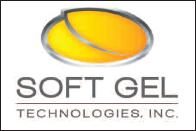
The Quest to Find a Plant-Derived Anti-Inflammatory Agent
Hops (Humulus lupulus) were introduced to North America during the early 17th century. The plant was utilized in brewing to add bitterness and aroma to beer. Although hops have been used for medicinal purposes over the years, interest has grown considerably because of newly discovered biological activities of some of the primary active constituents. 
It was not until recently that the anti-inflammatory activity of certain hops fractions, primarily derived from resinous extracts, was discovered. The biochemical constituents of hops—alpha acids—have shown great potential in helping to support the body’s natural response to inflammation and minor pain, caused by the activation of cyclooxygenase (COX) enzymes. Without inhibiting the COX-2 pathway, pain is not easily managed. Alpha acids have been described as potent antioxidants and anti-inflammatory agents capable of inhibiting the induction of cyclooxygenase-2 (COX-2).

These COX-2 enzymes promote the synthesis of pro-inflammatory prostaglandins, which break down connective tissue and bone. Because Humulus lupulus is selective for COX-2 and not COX-1, it doesn’t have the gastrointestinal (GI) problems associated with non-specific COX inhibitors like many non-steroidal anti-inflammatory drugs (NSAIDs). In one investigation published in the Asia Pacific Journal of Clinical Nutrition, hops extracts were found to be a prudent alternative to ibuprofen (an NSAID) for supporting a healthy inflammation response.
For Rapid Relief, Trust Perluxan® Softgels
Perluxan® softgels are a unique, all-natural anti-inflammatory supplement primarily targeted for maintaining joint health. The formula includes a proprietary hops resin extract that is standardized to contain high concentrations of alpha acids clinically demonstrated to reduce pain-causing compounds in a short time with a low dose. Not only does this unique botanical promote joint comfort, it is also virtually free of phytoestrogenic and sleep-inducing compounds. Additionally, each softgel contains ginger and peppermint oil, and is easily absorbed, fast acting and GI-friendly.
Extensive in vitro, ex vivo and in vivo human clinical trials have been conducted over the last decade to establish the phytomedical credibility of Perluxan®. Research has shown that Perluxan®:
• Has a fast-acting effect, supporting joint health and soothing aches from overexertion of everyday activities within two hours of ingestion.
 • Moderately inhibits the pain-causing enzyme COX-2 without creating cardiovascular risk.
• Moderately inhibits the pain-causing enzyme COX-2 without creating cardiovascular risk.
• Only mildly inhibits the GI-protective enzyme COX-1, thus avoiding GI distress.
• Significantly improves parameters of minor pain, with the ultimate outcome of increased joint function and better quality of life.
Perluxan® Human Clinical Research
Study #1: A dietary supplement is a selective COX-2 inhibitor both in vitro and ex vivo in healthy human volunteers.
A double-blind, randomized parallel design trial was conducted on 19 healthy subjects. Subjects received a single dose of ibuprofen (400 mg), a softgel containing hops resin (450 mg) or a capsule containing the hops resin converted to powder form (300 mg four times/day). Both hops supplement forms were standardized for alpha acids (150 mg). Levels of COX-1 and COX-2 were monitored at regular intervals over nine hours after the initial dose.
Results
The researchers said the hops preparations were as effective as ibuprofen at inhibiting COX-2, but had significant COX-1 sparing activity over a nine-hour period. The hops resin softgel was only administered once, whereas the hops powder capsules were administered in four divided doses over a nine-hour time period. The softgel had a faster onset of action and gradually reduced pain-causing enzymes over the period of the study. This improved activity of the soft gel was probably the result of the natural state of the resin, solubilized in oil, as opposed to the conversion of resin-to-powder for capsules and tablets.
Study #2: Efficacy of Oral Perluxan® Intake in Subjects With Knee Osteoarthritis: A Randomized, Double-Blind Study
A double-blind, placebo-controlled trial evaluated the effects of 14 days of Perluxan® supplementation on 36 subjects with osteoarthritis of the knee. At baseline, they completed a Western Ontario McMasters Osteoarthritis Index (WOMAC) questionnaire to evaluate pain levels. The time to perform a 20-meter walk on a flat surface was also recorded.
Study participants were assigned to take Perluxan® or a placebo. They were told to discontinue taking NSAIDs during the study period; however, up to 2,000 mg of acetaminophen could be taken for pain relief, limited to two days per week (rescue medication).
On day 15, the time to perform a 20-meter walk on a flat surface was again measured and improvements in pain relief were assessed using the WOMAC questionnaire.
Results
3 Perluxan® intake showed a fast-acting effect on mean pain relief; significant improvement over placebo could be measured only two hours after the first ingestion.
3 1,000 mg per day of Perluxan® significantly improved parameters of osteoarthritis pain, including mean pain relief while in bed, sitting, lying and walking on a flat surface.
3 The effectiveness of Perluxan® was supported by the limited use of rescue medication in the treatment groups compared to placebo.
3 The researchers concluded that Perluxan® improved pain relief in patients with osteoarthritis, with the ultimate outcome of increased function and better quality of life.
Summary
Hops extract seems to have significant potential for minor pain relief that rivals some medications, with fewer side effects. Available exclusively from Soft Gel Technologies, Inc., Perluxan® softgels help support the body’s natural response to inflammation and provide a safe and effective option for worry-free joint support.
References
Available upon request at marketing@soft-gel.com.
These statements have not been evaluated by the Food and Drug Administration. This product is not intended to diagnose, treat, cure or prevent any disease.
Published in WholeFoods Magazine, Aug. 2010 (epub July 20, 2010)









